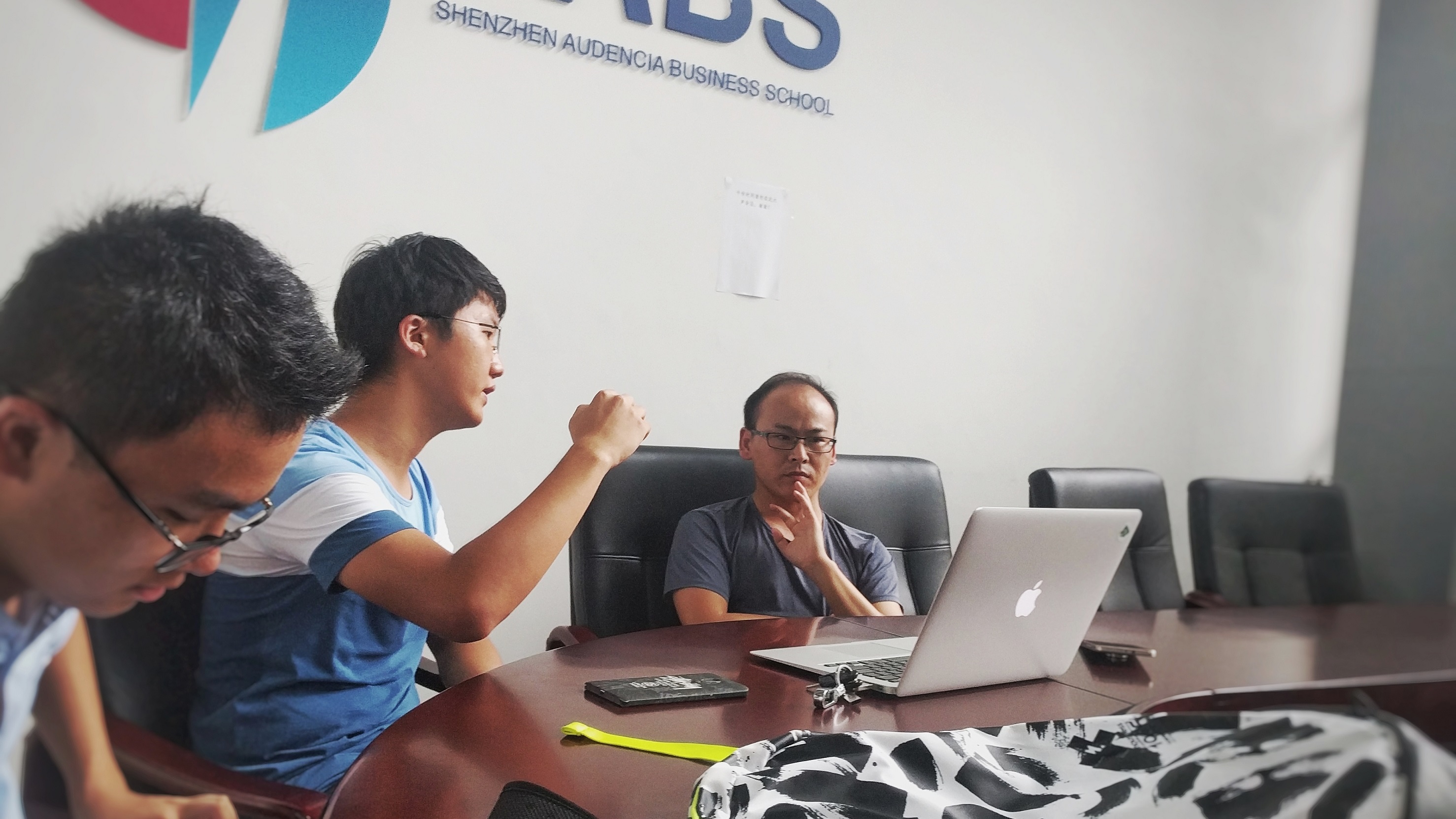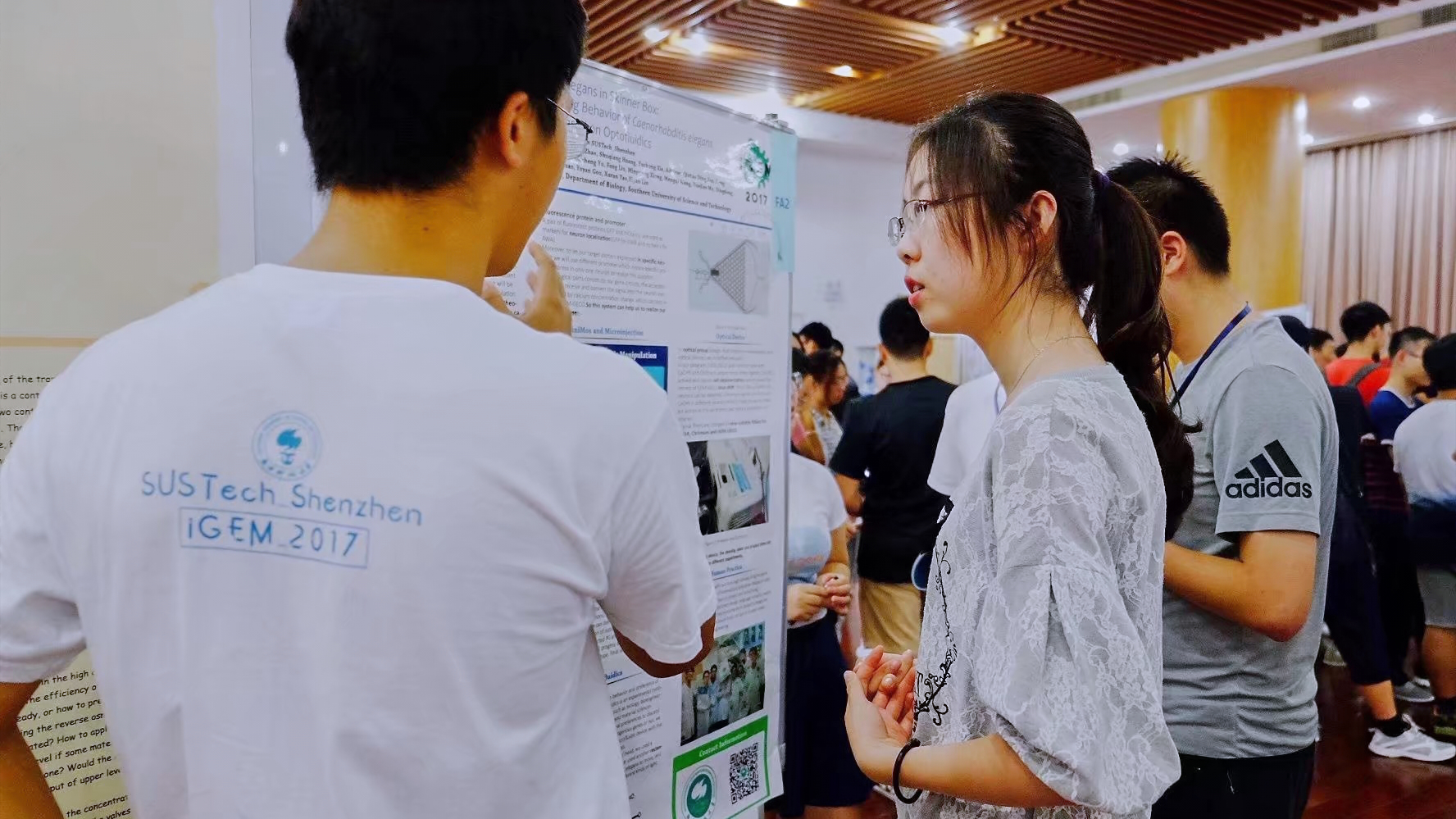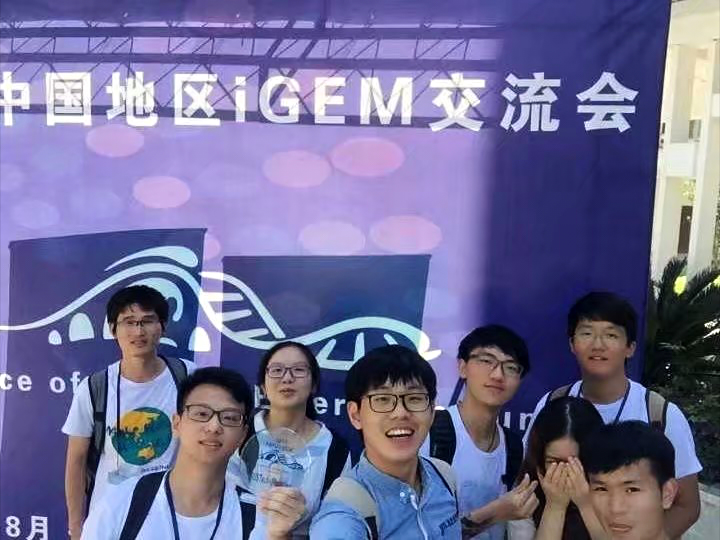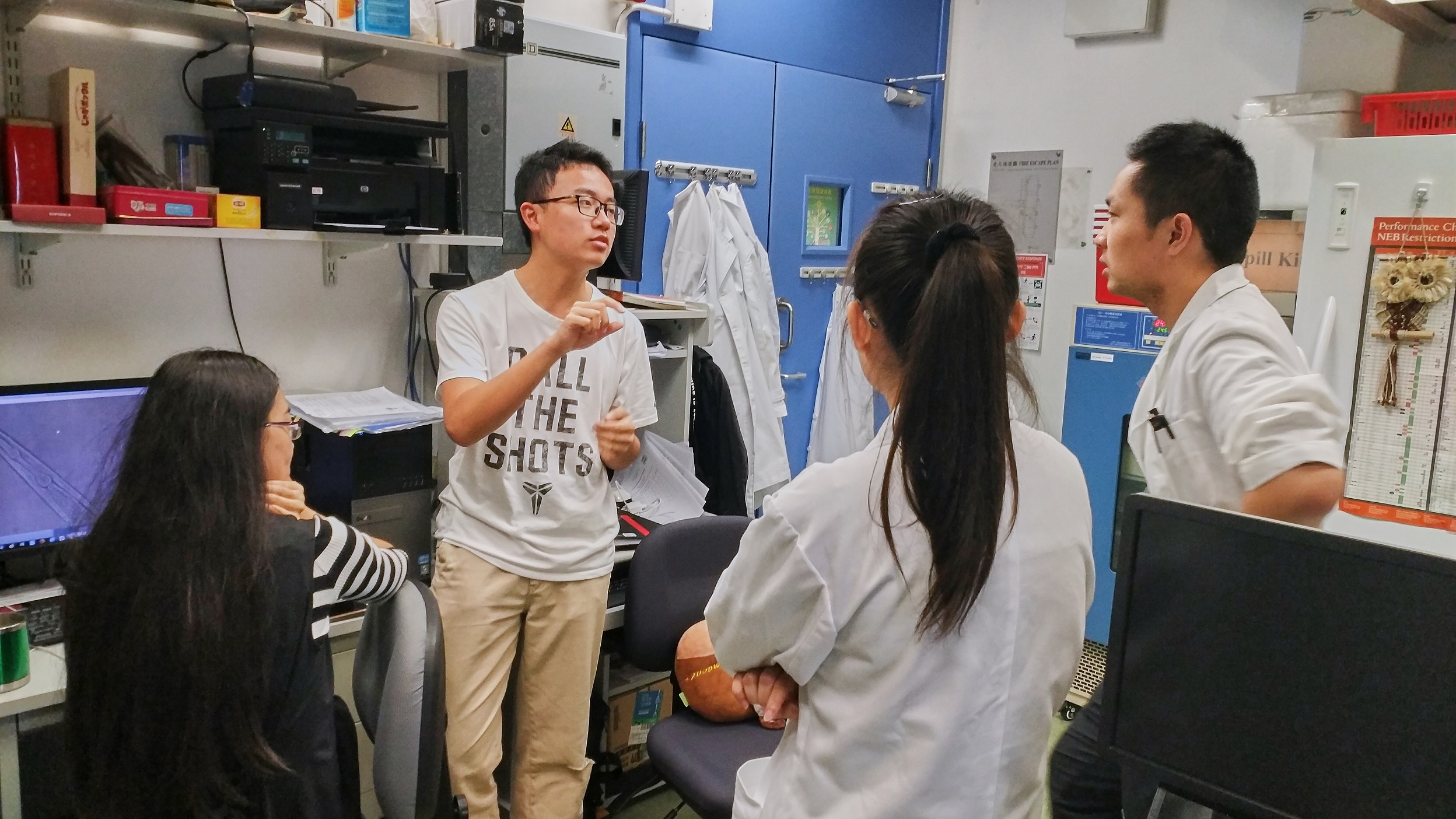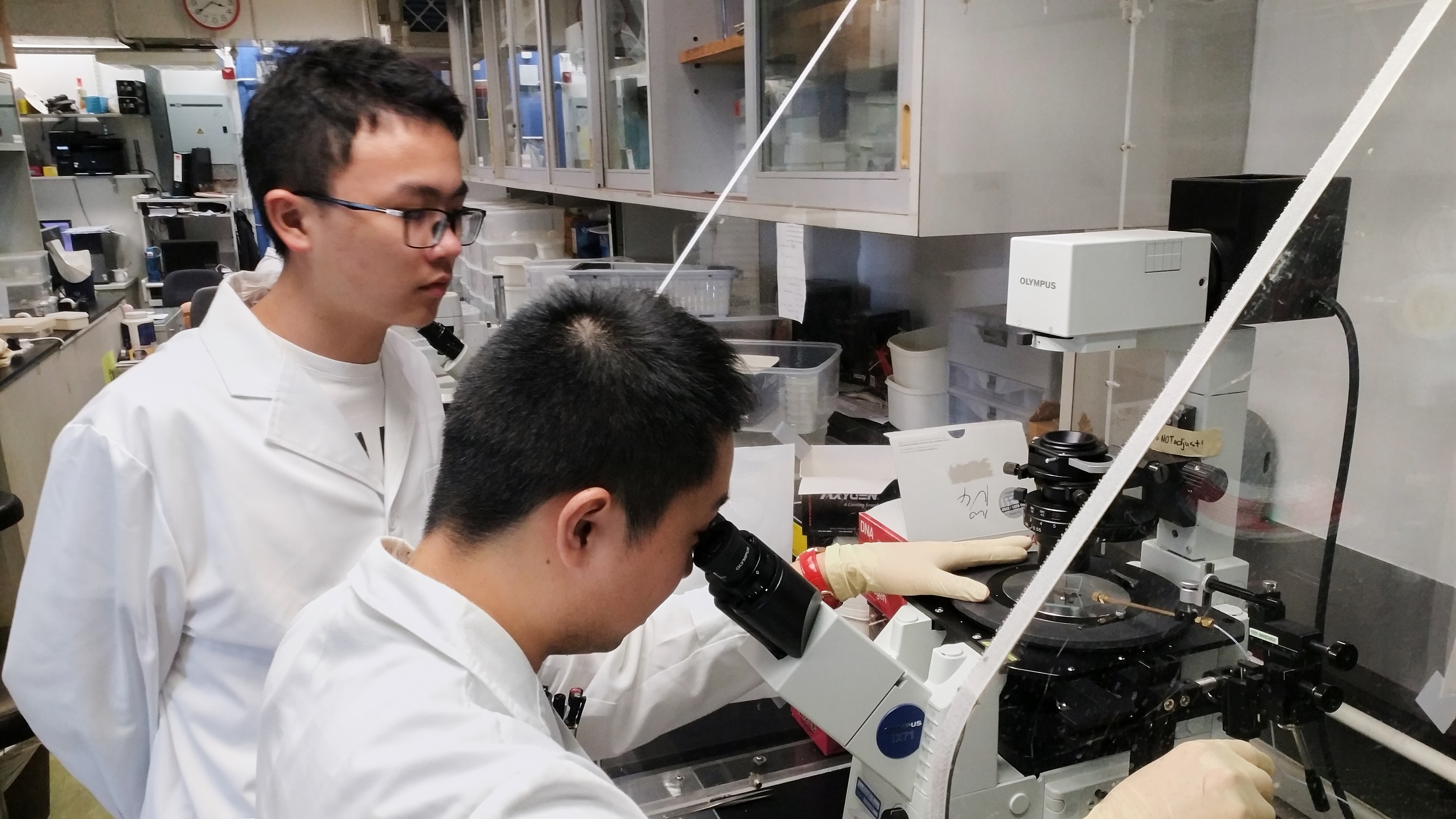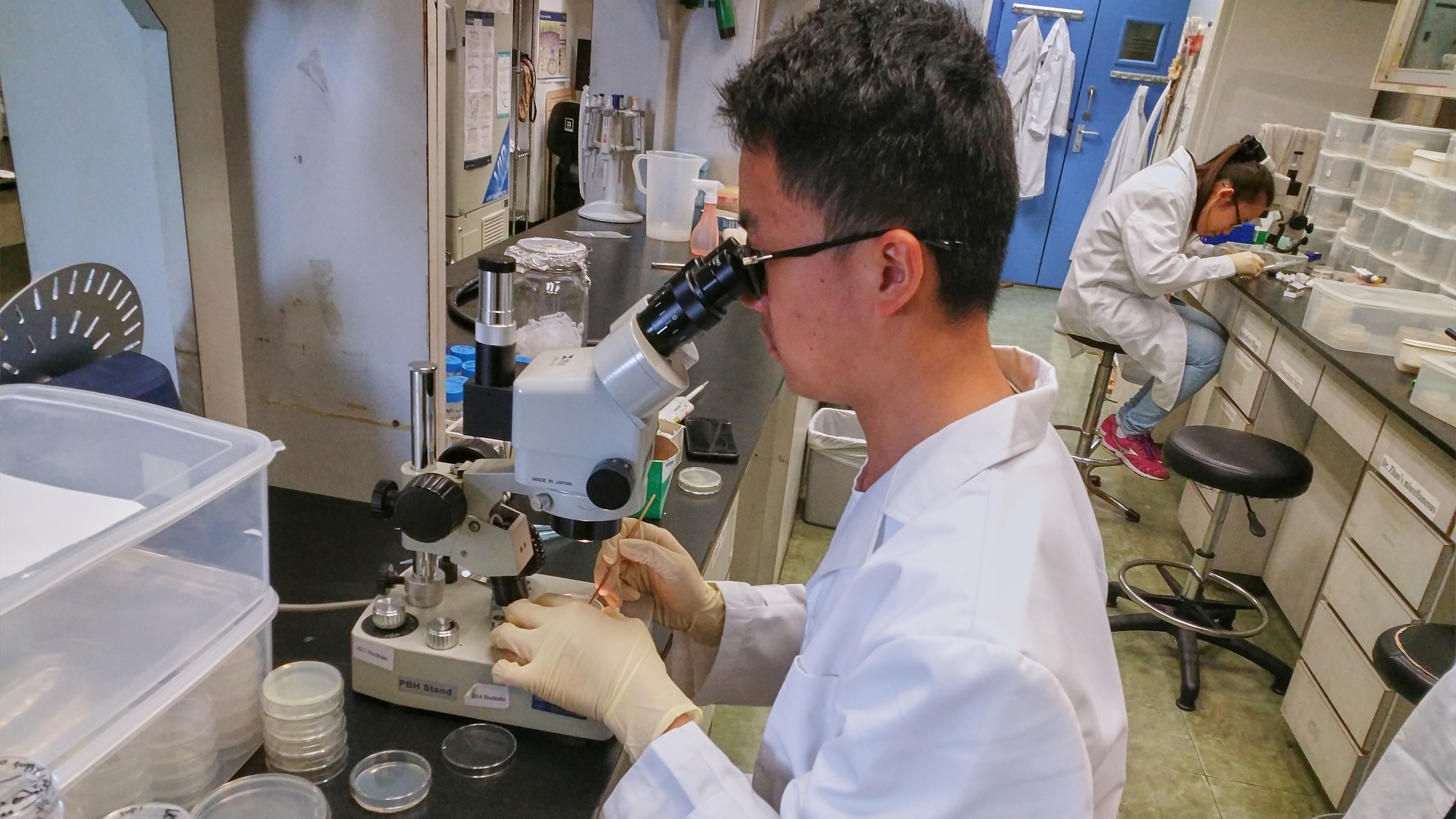| Line 10: | Line 10: | ||
Human practice activities are integrated throughout the design and execution of our project. Interaction with the public and fellow researchers led to many improvements in our design, like the design of behavior experiment, the improvement in microinjection procedures and better <i>C. elegans</i> mating method.</font> | Human practice activities are integrated throughout the design and execution of our project. Interaction with the public and fellow researchers led to many improvements in our design, like the design of behavior experiment, the improvement in microinjection procedures and better <i>C. elegans</i> mating method.</font> | ||
</html> | </html> | ||
| + | ------------- | ||
== Exchange of Ideas with Fellow Scholars== | == Exchange of Ideas with Fellow Scholars== | ||
| Line 21: | Line 22: | ||
This communication corrected our previous experiment design, and professor Li became our new PI in project. | This communication corrected our previous experiment design, and professor Li became our new PI in project. | ||
| − | + | ---------------- | |
==Communication with Other Teams== | ==Communication with Other Teams== | ||
| Line 37: | Line 38: | ||
This conference not only enlightened us about the design of our experiment, but also provided us with new ideas about synthetic biology. | This conference not only enlightened us about the design of our experiment, but also provided us with new ideas about synthetic biology. | ||
| − | + | ------------------- | |
== Communication in HKBU== | == Communication in HKBU== | ||
Revision as of 03:09, 28 October 2017

Human Practices
Our step to make a better world
Contents
Human practice activities are integrated throughout the design and execution of our project. Interaction with the public and fellow researchers led to many improvements in our design, like the design of behavior experiment, the improvement in microinjection procedures and better C. elegans mating method.
Exchange of Ideas with Fellow Scholars
Considering our needs to design the behavioral experiment to train worms, we held a seminar with behavioristic psychology professor Peng Li of Shenzhen University, aiming to get some inspirations for our behavior experiment design.
In the seminar, Prof. Li gave some professional advise on our design in aspect of behavioristic psychology. Professor pointed out the lacking of an indifferent stimulus on which we can build a new behavior. He suggested building tropism on an indifferent factor by training worms with favorite/abhorrent stimulus. That is much easier than training worms to change their pre-existing likes and dislikes. The advice we got from Prof. Li helped us correct our principles and guided us to design our new behavior experiment.
With the advice of Prof. Li, we amended our behavioral experiment design, prevent ourselves from wasting time.
This communication corrected our previous experiment design, and professor Li became our new PI in project.
Communication with Other Teams
On 2017.8.26-2017.8.28, our team was invited to attend CCiC (Conference of China iGEMer Committee) in Fuzhou, China to present our project among peers researchers.
All the 49 teams invited to the conference gave presentations and exhibited posters about their projects. During the conference, especially in the poster session, we had many opportunities to communicate with other teams and exchange ideas of our project designs.
After presenting our project on the conference, we had a short discussion with the judges, who provide us with much valuable advice. Judges raised concerns about the long-time training which may make C. elegans too big.
Therefore, we verified this hypothesis and modified our training pattern and experiment design.
This conference not only enlightened us about the design of our experiment, but also provided us with new ideas about synthetic biology.
Communication in HKBU
In this conference, we were enlightened about the design of our experiment. This oppotunity also provided us with new ideas about synthetic biology.
Collaboration with Fellow Researchers
At initial stage, we faced lots of problems on microinjection, such as low success rate and low male worms rates after mating. So we contacted a lab which major in C. elegans research in HKBU with the help of our first PI. We learned from Doctor Ding about microinjection in that lab. After several visits in this summer, we got MiniMos insert of our part on C. elegans.

